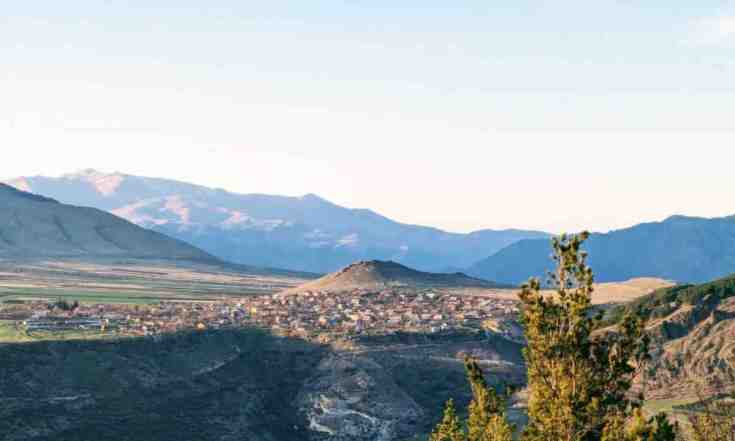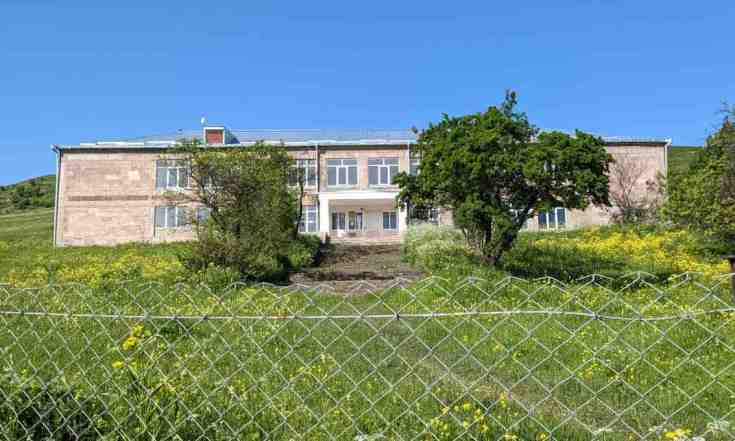Get ready to meet Tenzin Nyima, an Asian volunteer who’s doing amazing things in Armenia with the Peace Corps. We’ll explore Tenzin’s adventures, struggles, and successes as ‘crosses cultures’ to make a difference. Join us as we learn about how Tenzin and other Asian American volunteers are making a big difference in the world.
1. Introduction
Can you tell us more about yourself?
My name is Tenzin Nyima and I am serving in Armenia. I was born in Dharamsala, India, and emigrated to the United States at age seven. In the eighteen years I lived in the US, before serving in Armenia, I graduated high school and received a bachelor’s degree in my home state of Idaho. Shortly afterward, I moved to Minneapolis, Minnesota, and received a master’s in human rights in 2022. My name Tenzin is Tibetan and it means ‘upholder of teachings’. I guess it seems pretty befitting for my current role as a TEFL volunteer.
2. Motivation and Inspiration
What inspired you to become a Peace Corps volunteer?
I had my first experience teaching abroad in 2019 when I was volunteering as an English teacher over the summer in Samraong, Cambodia. The friendships I attained, the challenges of teaching, and the positive outcomes and interactions among students led me to discover the enjoyment of teaching.
Additionally, I studied international relations for my bachelor’s, so naturally, anything abroad interested me. I applied for the Peace Corps in 2020 and received an invitation a couple of years later.
My mother, who is Tibetan, always advocated traveling and finding a purpose that fulfills my enjoyment and career. She was the primary person that inspired me to join the Peace Corps.

3. Service Experience:
Can you describe your service experience?
After three months of PST, I was assigned to a village called Dzoragyugh in the northern Armenian province of Lori. With a population of roughly 300, I am surrounded by lush greens and kind hard-working people who live quiet lives. As a TEFL volunteer, I teach at a basic school with a student population of 35 and roughly 12 teachers. In terms of projects, one small scale is my after-school clubs and summer activities such as camps and two-week classes. In terms of large-scale projects, I along with my community are implementing a community resource center aimed at empowering the people through education, job services, and engagement.
4. Community Integration:
How have you built relationships within the community?
I have built relationships within my community of service by exploring the village and introducing myself. Some conversations last only a minute while others go for more than 10 minutes. Though I don’t know everyone individually, it is fair to say that almost everyone in Dzoragyugh knows me.
I felt deeply integrated into the local community when students of mine would invite me to play football or have tea with their families. I felt welcomed and respected in the community.

5. Language and Communication:
Have you faced any language barriers?
Excluding students, I believe that I am the only person in my community who can speak English at an advanced level. So being able to speak Armenian and get my needs or thoughts across paid huge dividends. I also believe knowing another language besides English, which in my case, is Tibetan, helped with the pronunciation and speaking in a more localized tone.
I have faced language barriers in many different settings, such as the school, my host family’s home, the store, etc. I often overcame these situations by rehearsing small words or phrases ahead of time or practicing the language through self-study or with a tutor which gave me confidence in my ability.
6. Challenges and Triumphs:
How has your heritage impacted your service?
I am not sure if there are many Tibetans who have served in the Peace Corps. I think I might be the first Tibetan-American to serve in Armenia and maybe be here for an extensive amount of time. Armenia, is a homogenous country, I often get curious looks when I am wandering through cities or towns. And even more interesting looks when I speak their native tongue.
By now, I have gotten used to that sort of social interaction. To me, a lot of these interactions or unwanted attention can be overcome by remaining open and smiling to others when maintaining eye contact.
Raised Buddhist and still holding Eastern traditions, I often found contrasting ideas in the US more than here in Armenia. Though I may look different and practice different faiths, my heritage growing up has been a positive asset and experience in my community.

7. Empowerment and Impact:
How do you believe your presence as an Asian heritage volunteer has positively impacted the community?
I think some locals have a preconceived idea of the United States being primarily a country of mostly Caucasians or people from Europe. So when their understanding is shattered by seeing an Asian American, it diversifies their understanding of the US; its diverse culture, land, etc.
8. Support System:
How important has the support network been during your service?
The support network has been phenomenal. I have never needed to personally get in touch with someone from either a fellow volunteer or a staff member to seek treatment or support, but the constant reassurance and communication of having that option always being there makes my service more stable.
I think I encountered a somewhat level of isolation in the initial three months of post-pst which we call the cultural integration period. Before the Peace Corps, I lived in Queens, NY for almost 9 months. So from such a drastic shift, I felt isolated in accepting that I have to go through this process of understanding my surroundings and everyone, like I have done so many times in my upbringing and recent years.
Over time, I found my footing by being engaged in personal hobbies and constant reassurance from myself and fellow volunteers that building relationships and gaining the trust of the village takes time and dedication.

9. Cultural Exchange:
Are there aspects related to being a volunteer with an Asian heritage that you find interesting or challenging?
As a Buddhist practitioner, I found it intriguing that my reasons for being a vegetarian, solely for ethical/moral reasons, often get questioned in this context. Additionally, I came to realize that there are many similarities between Armenia and my country of origin.
10. Personal Growth:
How do you think your Peace Corps service is contributing to your growth?
I am getting to know more about myself. What are my physical and mental limitations? How far am I willing to help or guide someone? For the past six years, I was in an academic setting and rarely acquired any working skills post-school. So the experience of teaching, grant writing, and professional networking all contribute equally to my personal and professional life.
11. Advice for Aspiring Volunteers:
What advice would you give to other people with an Asian heritage considering joining the Peace Corps?
I would say that the initial three to six months are often the most difficult, but that doesn’t mean the rest of the Peace Corps service is smooth sailing. Be open to making mistakes, be open to learning from those mistakes, and also capture the interesting moments as best as you can. We recently celebrated our first-year anniversary since arriving in Armenia and I cannot believe how quickly it flew by. And lastly, and perhaps the most important, is to live in the present moment. Live in the now. Focus on your goals and objectives for today.

12. Legacy and Impact:
What do you hope your legacy will be in the community?
I hope to be remembered as a volunteer who was easy to get along with not just with the pupils but also with the teachers, parents, and elderly. A volunteer who had a passion for teaching and would always find new methods and engagement in teaching. Lastly, I hope to set an example for future generations of learners and the importance of not just learning English but that education is an important key to a better quality of life.

To help celebrate Asian American & Pacific Islander Heritage Month, read more amazing stories from just a few of the Asian American volunteers in our series “Crossing Cultures” You will hear from volunteers who are currently serving, but also some who served in the past. You can find more here!
Key Takeaway
Tenzin Nyima’s story reminds us how one person can make a difference, even “crossing cultures.” Tenzin’s interview shows us that no matter who we are, we all have the power to make things better. Let’s keep celebrating our differences, understanding each other, and supporting people like Tenzin who work hard to make the world a better place. Together, we can make the future brighter for everyone.



